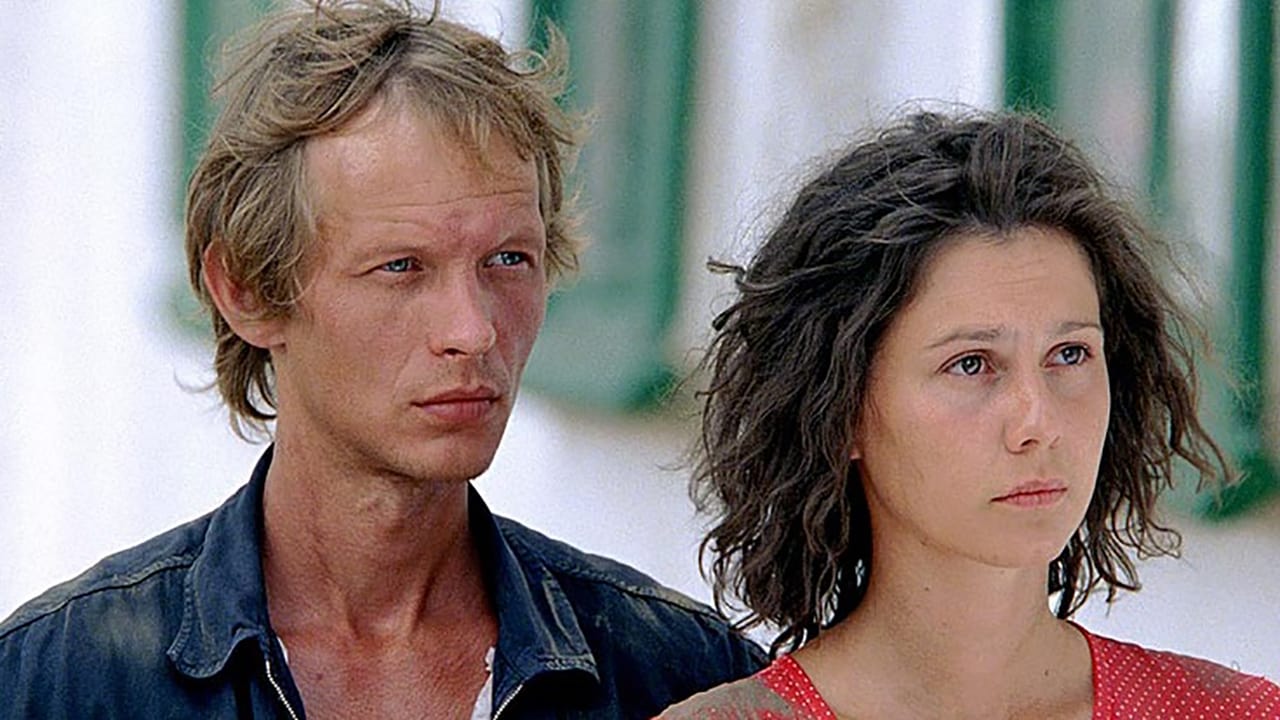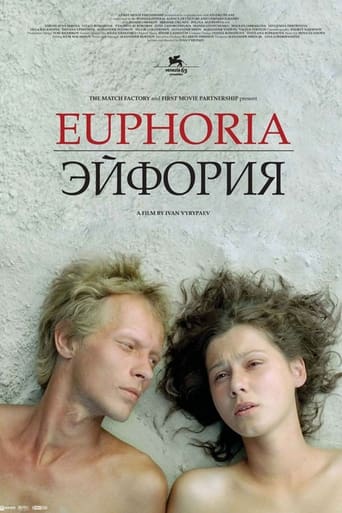

Maybe it is flawed at the core as someone mentioned - perhaps too erotic, too reckless when it comes to human relations (one would like to see a caring mother, a loyal husband etc.). But then there is the extensive imaginary of steppes, the ever-still nature indifferent to any human affairs. The force far greater than the convention. The long scenes are poetic, the music, the scarcity of dialogue - all together make an unforgettable experience. It's an astonishing spectacle of human passions.I see all the striving of the main characters as a way to break free from the slow death served by these idyllic landscapes. A way to show that human passions conquer everything: including nature, customs or any terrestrial rationality. Just like in the scene where Vera escapes her husband to the lover, escapes rooting away with the person she doesn't love to something uncertain, yet powerful enough to abandon what is certain. I think this film never really wanted to deal with morality and doesn't claim that infidelity is accepted, it rather shows two antagonistic powers: one of the stillness, and one of the passion. In the place where stillness reigns, passions burn one's soul, to burst when the time comes. For Vera and for Pavel the time has come. Once they break the flow of stillness, they are lost - lying on the grass completely aghast, muttering words that no longer have meanings, nor sound. Finally they are punished for breaking the flow, for their rebellion and courage. And that is what seems to beyond Vera's understanding, as if life didn't want to grant permission for that extraordinary happiness, as if it opposed their love. Or maybe it's not any metaphysical force but "merely" human passions - conflicting human passions in the flow of life that is beyond comprehension, just like a ride on a motorbike, arranged by someone else for you.
... View MoreThe three things the creators of this horror wanted to do were: (1) Photograph lots of beautiful scenery, treating the big screen as a monstrous canvas for near-still photography merging into visual art;(2) Set it all to avant-garde classical music performed with electronic instruments;(3) Show the mindless brutality and degeneration that they believe to be the Russian psyche.(1) and (2) are self-evident at first glance. They're also quite secondary.And (3)? Well, how else to characterize a movie the plot of which is as follows: semi-degenerate-looking man goes crazy, then tries to seduce a cheaply country-erotic woman; fully degenerate husband of country-erotic woman cuts off finger of girl bitten by dog; neighbors take girl away; woman runs off with man, has wild sex in fresh air; husband burns empty house down to the ground, takes shotgun, shoots cow, shoots man and woman.Oh yes, and in between somewhere for no reason other than (3) otherwise apparent is a scene of a few degenerates partying away that ends with a woman stabbing someone in the chest with a fork.And let's not forget the degenerate-looking mental subnormal that drools as he rides his motorcycle, in scene after scene.Hell, perhaps there's more to the movie than (3).What it is, I don't know.But whatever it is, it is stinkily obscene.
... View MoreI have seen very little of the Russian cinema made in the years since the Soviet Union does not exist, and for me it's kind of a discovery similar to seeing new cinema schools from unknown places. Yet, Russian cinema is also the successor of an important film school, with major directors and an film industry that was part of the propaganda machine during Communist rule, but also succeeded to make major films and launched important directors.'Eyforiya' is a beautiful and unusual film. It is a love story set in the Russian steppes, in a place where civilization seems to be in retreat. Primary instincts and dreams seem to rule the actions of the characters. The story of the forbidden love of the farmer's wife and of the goat-keeper who sees and falls for her at a wedding party is doomed to end in tragedy, not only for them but for almost everybody around, yet none of the characters seems to be in control of his life or actions. As the fool at the beginning and end of the film who is stuck by the mob to his motorcycle and starts to run wildly to nowhere, so do the characters seem to be under the control of a destiny that is hostile to them for reasons unknown. Nature plays the lead role in the film, with a landscape suggesting desolation, infinity, with forces that dwarf human will, and with a balance and harmony that seem to broke at the moment the couple makes an attempt to fulfill some kind of personal happiness. All is beautifully filmed, colors and composition are beautiful by themselves and they become part of the experience of seeing this film. At scarcely 70 minutes of screening the film is the right size for us to accept and feel this beauty before the simplicity of the story becoming too evident to bother. Beautiful poems are never too long.
... View MoreAs the name of the film implies, it is very poetic. There is hardly any plot, instead, it is carried by the major characters' emotions, manifesting themselves in depictions of a beautiful landscape largely untouched by civilisation and the film's music, which is at the same time sublime and calming.Slowly, yet inevitably, outward reality is permeated by the characters' inner sensations, the secluded landscape devoid of human presence metaphorically representing the characters' constant and persistent departure from reality into an inner unreal and irrational world where feelings and emotions are substituted for reason, the regulating force of the rational world, abandoned by the protagonists.Yet the calming removal from outward reality turns out to be just momentary and illusive. Reality, allegorised by the female protagonist's deceived husband, stalks its prey, eager to destroy the fleeting quietude of the unstable and unreal metaphorical space.Unfortunately, being rather a rational than poetic person, I cannot help but to additionally interpret the film in a rational way. Interpreted in rational terms, there is a major flaw at the core of the film. In order to avoid any spoilers, it will suffice to say that the female character's child as well as male protagonists have to suffer for the woman's adultery.This is a very misogynous perception, which used to be typical for the pre-1960s society. Prior to the feminist movement in the 1960s onward, patriarchal societies around the globe aimed at presenting the world in male terms, reducing women to mere objects who have to obey and to behave in accord with the patriarchal norms and regulations. Obviously, this perception neglects female desires and aspirations, which have to be sacrificed in order to maintain the patriarchal status quo.Thus, an incredible amount of films was produced prior to 1960s, whose aim it was to present the alleged horrendous consequences of female behaviour that deviated from the norms as set by patriarchal society. In most cases, already a mere consideration of abandoning the husband sufficed to cause havoc in the family, damaging the children and husband alike. I have not, however, seen any recent films communicating this flawed, archaic, and anti-feminist message, and, therefore, hoped that this kind of anti-feminist films has gone for good.Unfortunately, this film has proved me wrong. The female protagonist appears insecure, unable to make decisions for herself and to abandon her family to start her life anew. Instead, she is persistently dragged away by her lover, eventually resigning to her fate. At a closer look her lover appears as an alter ego of her husband, yet another representative of the male society, eager to protect and to own the female, without making any attempts at understanding the female nature.At one point in the film one of the protagonists says, "Don't think. Contemplation just makes things worse." This may be a guideline to watching this film - don't think about it. Let yourself be carried away by its poetic qualities. Don't try to interpret the film in rational terms, it was not meant to be interpreted in such a way by the director. A rational interpretation would violate the film's poetic nature and inevitably ruin the experience
... View More